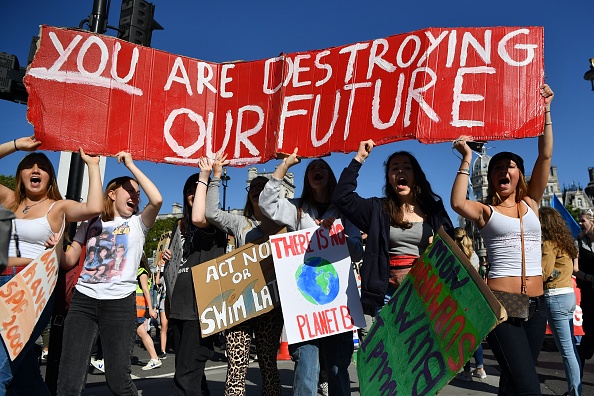Enfranchise the teenager? Votes at 16 is not as mad as you think

“Votes at 16!” opposition MPs demanded in the debate on whether Britain should have an election.
They were denied the chance to vote on this by the deputy speaker, so 16–17 year olds will not be voting on 12 December – a relief, given the gargantuan hurdle of registering 1.4m new voters.
But the question of lowering the voting age is back on the agenda. And since constitutional reform is a hot topic right now, it’s worth considering seriously.
First, let’s get some of the weirder objections out of the way. One common argument against is that 16–17 year olds are overwhelmingly left-wing, so would skew the vote unfairly.
This may be true (though the views of the vocal teenagers advocating for this cause may not represent their cohort as a whole), but even if it is, so what? Since when do we disenfranchise demographic groups because they tend to vote a certain way?
Another refrain is that children will be “indoctrinated” by their (presumably anti-Tory) teachers. But if it were that easy, no teacher would ever have to chase late homework. Teenagers don’t always do what they’re told.
Young people, like everyone else, are influenced by a vast range of sources, from friends to family to what they see online. And the latter is a much bigger concern for all of us. Which is more likely: a 16 year old voting Labour because their teacher told them to, or being won over by click-bait social media posts full of misleading “news”?
If we’re really concerned about shady influences in elections, we should be having a much broader conversation about micro-targeted ads and transparency on social media. But that’s a completely separate issue.
All this, however, is a sideshow. The real question is this: are 16 year olds really mature enough to help decide how this country is run?
It is easy here to think of the errors you made in your youth or the ineptitude of your own children. Teenagers are not known for their self-control or ability to make rational decisions.
But adulthood is not one single thing bestowed on a person on their eighteenth birthday. The web of inconsistencies in the law reflects that. You must be 18 to drink, smoke, or gamble, but you can join the army or start a family at 16, and the Treasury expects you to pay taxes if you work. If you’re obliged to fund the country at 16, and can start training to serve it in uniform or raise a child in it, why not vote?
The messy reality is that, among those 1.4m people, some will be adequately equipped to exercise their democratic rights, and some won’t. Some will be interested in doing so, and some won’t. But that’s true of any age group. We don’t force people to take a civics test before handing them a voting card. We don’t quiz them to check that they’re informed enough to understand what they’re voting for.
We may think some people’s reasons for how they vote misguided, trivial, or utterly unsound, but democracy means allowing people who disagree with us a say in the conversation too.
What votes at 16 would do is instil early the practice of voting. All parties say that they want to increase electoral turn-out. In 2015, just 43 per cent of 18–24 year olds voted compared to 78 per cent of over-65s. That rose in 2017, but not by a huge amount.
Think what would happen if school pupils could actually see their peers deciding the fate of the country, watching the dry lessons of the politics classroom play out in real life. That early inspiration could set the tone for a lifetime of democratic engagement.
This is probably too radical to happen in one fell swoop across the nation. A pragmatic transition would be votes at 16 in local elections to give young people a say over community-level politics. Scottish teenagers already enjoy this right, as do EU nationals.
And since we’ve had three major referendums in eight years, if the new trend is to vote on changing the democratic landscape for decades to come, it makes sense to include more young people in that future.
One final note on the illogic of adulthood: while I often argue that we let people marry at 16, the rebuttal is yes, but only if their parents agree. I suggest that a natural compromise would be votes at 16 with parental consent.
After all, the stakes of a five-year parliamentary term are a lot lower than a lifetime romantic commitment.
Main image credit: Getty